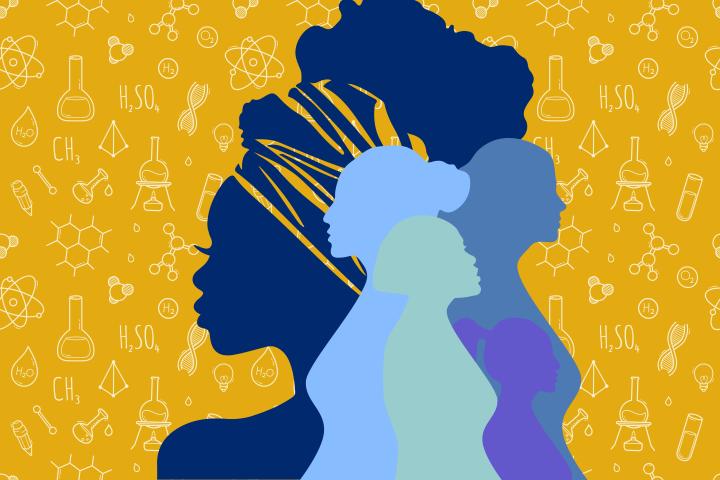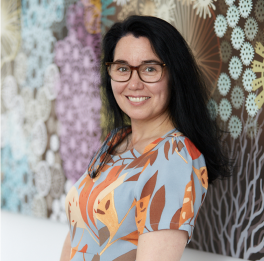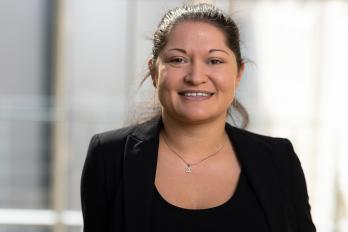Continuing a Legacy: Women Powering the IDM Forward

Leadership in the Institute of Infectious Disease and Molecular Medicine (IDM) has always been shaped by remarkable women. Most recently, the IDM thrived under the direction of Professor Valerie Mizrahi, whose tenure cemented the Institute’s reputation for scientific excellence, collaboration, and transformation.
Today, her legacy is in strong hands. In challenging and dynamic times, women at every level are shaping the IDM’s future and the values the Institute seeks to embody: transformation, people-centered leadership, and sustainable systems.
In celebration of Women’s Day, we profile Professor Wendy Burgers, Dr Christle de Beer, and Selisha Naidoo – each a trailblazer in her own right, each shaping the IDM as an inclusive, innovative, and resilient research environment.
Wendy Burgers: Leading with Purpose and Authenticity

A globally recognised immunologist and the IDM’s Deputy Director for Research, Professor Wendy Burgers leads with clarity and compassion. “I no longer feel I have to achieve anything for myself – that’s freeing,” she says. “It means I can use my time to serve others.”
During the COVID-19 pandemic, Wendy’s group co-led critical research that resulted in a high-profile publication showing how T cell immunity held across SARS-CoV-2 variants – work that had global impact. Now, her focus is on developing local mRNA vaccines with Afrigen and Biovac, ensuring Africa has a prominent seat at the global table.
But she also dreams of revitalising postgraduate training in the IDM: “I want students to graduate not exhausted, but excited – skilled and ready for the workplace, whether that’s in academia, industry, or beyond.”
Christle de Beer: Building the Enterprise from Within

As the IDM’s first Deputy Director: Enterprise, Dr Christle de Beer represents a transformational shift, not only in title but strategically.
With a PhD in innovation and commercialisation, and an Executive MBA under her belt, Christle is bringing enterprise thinking to life in the IDM. From streamlining systems and digitising workflows, to shifting mindsets around data-driven decision making, she is laying the groundwork for an institute that is smarter, faster, more adaptive and strategic, and therefore better equipped to support research and training in an often unpredictable and shifting landscape.
“Leadership isn’t about being the loudest in the room,” she says. “It’s about being intentional, listening deeply, and understanding the systems you’re working within - and knowing how to shift them while preserving their strengths.”
Selisha Naidoo: Operational Excellence with a Sustainable Future

From the ground up – literally – Selisha Naidoo is transforming how the IDM runs. As Principal Technical Officer leading the Biosafety, Research Infrastructure and Compliance portfolio, Selisha oversees 56 laboratories, technology platforms, and the IDM’s compliance and certification efforts.
But her impact is more than managerial. As the driving force behind the IDM’s pursuit of My Green Lab certification, Selisha is leading efforts that will make the Institute the first in Africa to achieve this global standard for sustainable labs. “It’s no longer just about what we discover,” she explains, “but how responsibly we get there.”
Selisha’s leadership style is grounded in empathy and empowerment. “People are at the centre of everything; when they’re supported to grow, everything around them thrives.”
A Shared Vision for the Future
Together, these three leaders represent a broader reimagining of leadership in the IDM—one that values collaboration over hierarchy, systems alongside science, and people as much as publications.
They also model an inclusive culture where academic and PASS staff are jointly integral to the institution’s mission, and where women are not simply present but pivotal. Their collective vision for the IDM is one of purpose, transformation, and long-term sustainability - both in the research conducted and in how it is enabled, supported, and maintained.
